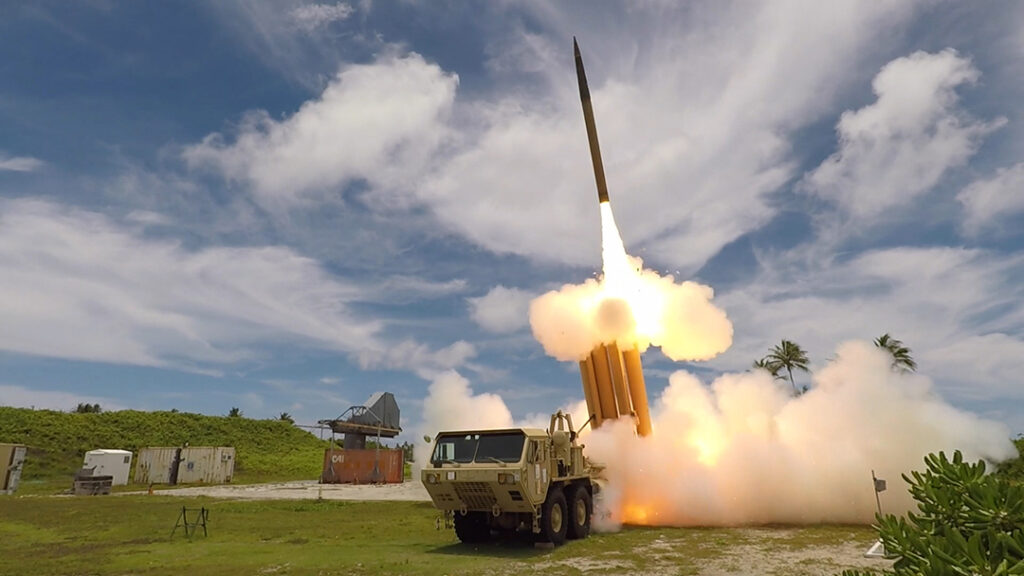U.S. Strategic Command
Globally, rogue actors and adversaries are testing the United States and its allies and partners through the proliferation of ballistic and cruise missiles, hypersonic glide vehicles and unmanned aerial systems.
The technological advancements of these weapons have ushered in a new threat environment, further underpinning missile defense as key to the security of allied and partner nations. The Joint Functional Component Command for Integrated Missile Defense (JFCC IMD) training directorate and its Joint Ballistic Missile Defense Training and Education Center (JBTEC) serve as a cornerstone, working with allies and partners on critical aspects of missile defense.
JFCC IMD instructors from Schriever Space Force Base in Colorado Springs, Colorado, provided training April 11-14, 2022, to military personnel from the Baltic states at the Estonia Control and Reporting Center in Tallinn, Estonia. The audience included members of the Estonian, Latvian and Lithuanian Air Forces.
JFCC IMD, a component command of the United States Strategic Command, conducted the training as part of United States European Command efforts to increase missile-defense capability and awareness in the Baltic states. Missile defense is key to deterring potential conflict.
JFCC IMD conducts global missile-defense operations support in coordination with other combatant commands, service branches and, as directed, appropriate U.S. government agencies.
U.S. Army Col. Geoffrey Adams, deputy commanding officer of JFCC IMD, explained the importance of missile defense not only in the North Atlantic Treaty Organization (NATO), but globally: “The situation in Ukraine is a powerful example of the danger missile threats pose to our forces and territories. Adversaries are challenging the U.S., allies, and partners with an increasing array of technologically advanced ballistic and cruise missile systems with greater mobility, accuracy and lethality.”
The Joint Ballistic Missile Defense Training and Education Center educates more than 4,000 people yearly at locations around the world, including at its campus in Colorado Springs. JBTEC is the only U.S. organization certified as a Joint Center of Excellence. Students come from the U.S. military services as well as from allied and partnered nations.
(Pictured: A U.S. Terminal High Altitude Area Defense missile is launched in a 2019 test in the Marshall Islands.)
The JBTEC’s mission is to enhance the ability of its students to conduct integrated air and missile defense (IAMD) planning, increase U.S. and partner abilities to operate across the joint force, and improve leaders’ abilities to analyze operational and strategic outcomes.
“We utilize small training teams at the various locations we travel to. In most cases, it is more cost effective than for the operators, planners and staff officers to travel to Colorado Springs,” said Pat McNelis, the JBTEC director and lead instructor.
In conducting mobile training and education events, the JBTEC significantly contributes to strengthening security relationships with U.S. allies and partners, as well as increasing cooperation in mutual defense. The training — a priority of U.S. security strategy — is highly sought after by U.S. allies and partners.
“Demonstrated commitment to mutual security agreements is invaluable to a strong alliance or partnership,” Adams said. “Training together is a good way of demonstrating our commitment.”
Estonia, Lithuania and Latvia are members of the European Union and NATO. The Pentagon signed defense-cooperation agreements with all three Baltic states in 2019. Under the agreements, areas of cooperation include capability development and defense-related aid, training exercises, cyber defense and host nation support.
The world is an unstable and dangerous place. Russia’s ongoing brutal hostilities against Ukraine; China’s “strategic breakout” of its nuclear and conventional forces, coupled with its aggressive military activities off Taiwan that signal a possible prelude to invasion; and the recent North Korean ballistic missile test launches are all destabilizing events and cause for international concern.
Given these recent events, it’s imperative that the U.S. military maintain strong and enduring partnerships with allies to demonstrate its commitment to maintaining lasting stability and security around the world.
IMAGE CREDIT: MISSILE DEFENSE AGENCY

